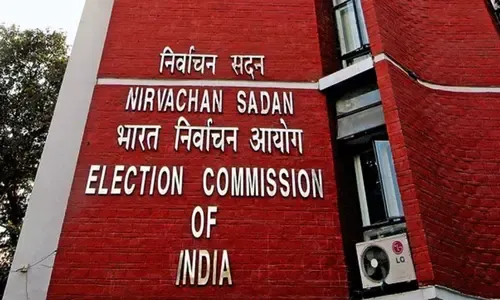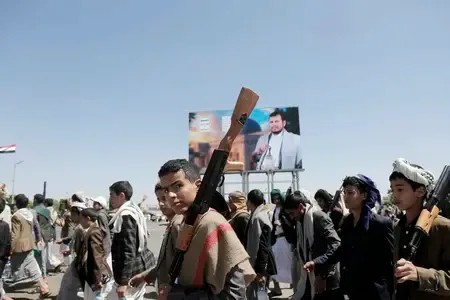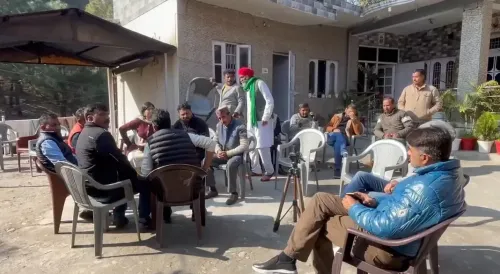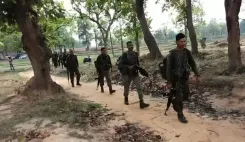Is India Committed to the Best Interests of Bangladesh After Hasina's ICT Verdict?
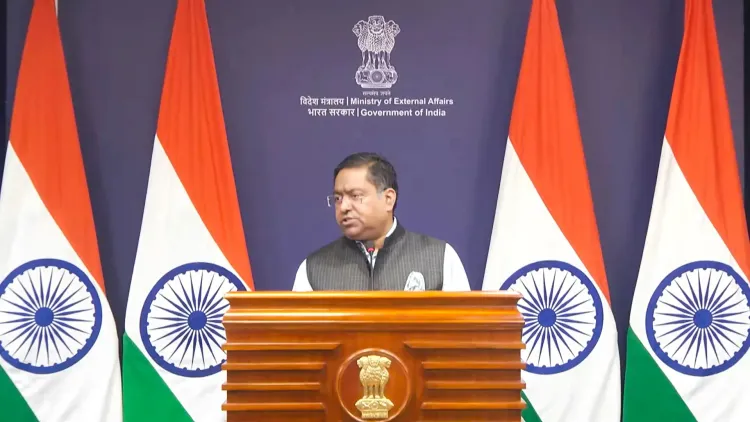
Synopsis
Key Takeaways
- India acknowledges ICT verdict against Sheikh Hasina.
- Commitment to Bangladesh's peace and stability emphasized.
- Hasina claims the tribunal is politically biased.
- Extradition request made by Bangladesh to India.
- Concerns over justice and political motivations raised.
New Delhi, Nov 17 (NationPress) India expressed its awareness regarding the verdict delivered by the so-called 'International Crimes Tribunal of Bangladesh' concerning former Prime Minister Sheikh Hasina. The nation reaffirmed its commitment to the well-being of the Bangladeshi people, emphasizing peace, democracy, inclusion, and stability in the neighboring country.
In a statement from the Ministry of External Affairs (MEA), it was noted, "As a close neighbor, India is dedicated to advancing the best interests of the people of Bangladesh, including in fostering peace, democracy, inclusion, and stability. Our intention is to engage constructively with all parties to achieve these goals." This announcement was made shortly after the International Crimes Tribunal (ICT) in Bangladesh issued a death sentence for the former Prime Minister, finding her guilty of 'crimes against humanity' linked to protests that occurred in July of the previous year.
The ICT also handed down convictions to two of Hasina's senior aides, former Home Minister Asaduzzaman Khan Kamal and former Inspector General of Police Chowdhury Abdullah Al-Mamun. Although Mamun received a pardon, the court stated that, considering the severity of the crimes, he would face a 'lenient sentence.'
On the same day, Dhaka urged New Delhi to 'immediately' extradite Hasina and Kamal, asserting that such an action is a treaty-bound responsibility for India.
The foreign ministry of Bangladesh asserted, "The existing bilateral extradition agreement between Bangladesh and India obligates New Delhi to transfer the two convicts. Moreover, providing refuge to individuals convicted of crimes against humanity would be perceived as an unfriendly act and a disregard for justice," as reported by Bangladesh's prominent daily 'Prothom Alo.'
In response, Hasina contended that the verdict against her stemmed from a 'rigged tribunal' established and overseen by an unelected interim government led by Muhammad Yunus, which lacks democratic legitimacy. She denounced the ruling as biased and politically motivated.
"Their abhorrent demand for the death penalty reveals the ruthless intent of extremist figures within the interim government to eliminate Bangladesh's last elected Prime Minister and to marginalize the Awami League as a political entity. Millions of Bangladeshis enduring the chaotic, violent, and socially regressive administration of Dr. Muhammad Yunus will not be deceived by this attempt to strip them of their democratic rights. They recognize that the trials held by the so-called International Crimes Tribunal were never meant to deliver justice or provide genuine insight into the events of July and August 2025. Instead, their aim was to scapegoat the Awami League and divert global attention away from the failures of Dr. Yunus and his government," Hasina stated after the controversial ICT ruling.
Criticizing the Yunus-led interim administration, she added, "Under his leadership, public services have deteriorated. Police have withdrawn from the country’s crime-infested streets, and judicial impartiality has been compromised, with assaults on Awami League supporters going unpunished. Religious minorities, including Hindus, face violence, and women’s rights are being suppressed. Islamic extremists within the government, including members of Hizb-ut-Tahrir, are attempting to undermine Bangladesh’s long-standing tradition of secular governance. Journalists are imprisoned and threatened, economic growth has stagnated, and Yunus has postponed elections while barring the nation's oldest party, the Awami League, from participating in these elections."
Hasina rejected the allegations presented in the ICT verdict. “I mourn all the lives lost during the events of July and August last year, on both sides of the political spectrum. However, neither I nor any other political leaders authorized the killing of protestors,” she emphasized.
She asserted her willingness to confront her accusers in a proper tribunal where evidence can be fairly evaluated, reiterating her challenge to the interim government to present these charges before the International Criminal Court (ICC) in The Hague.
“The interim government will not accept this challenge, as it knows that the ICC would exonerate me. It also fears that the ICC would investigate its own record of human rights violations during its tenure,” she concluded.


